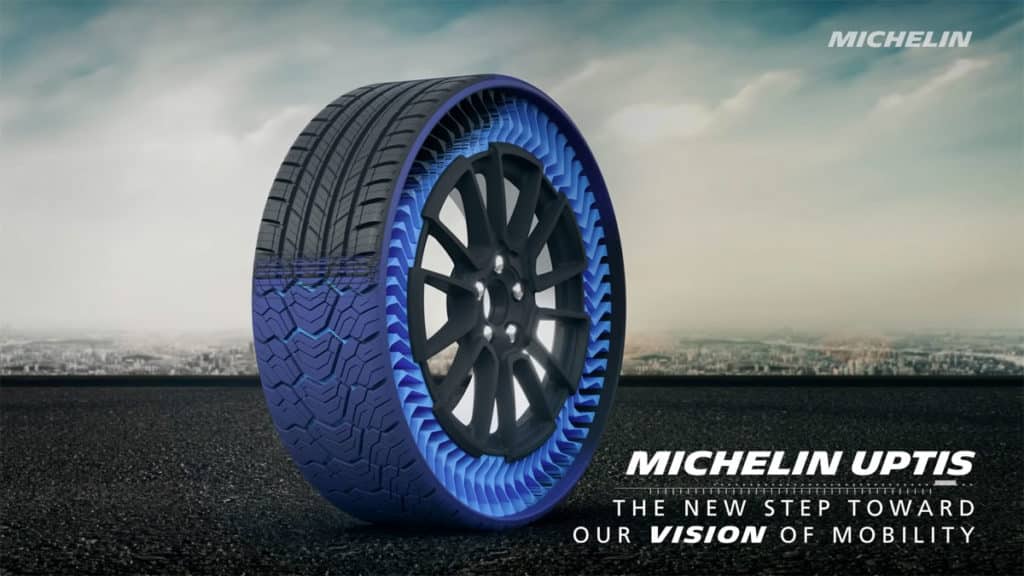Image: Michelin
2024 could be the year in which airless tires will finally come to market. This is according to Michelin and General Motors, which have announced that its Uptis tires will be introduced to passenger vehicles “as early as 2024.” Standing for “Unique Puncture-proof Tire System,” Uptis is an airless mobility solution that aims to make flat tires a thing of the past.
“General Motors is excited about the possibilities that Uptis presents, and we are thrilled to collaborate with Michelin on this breakthrough technology,” said Steve Kiefer, senior vice president, Global Purchasing and Supply Chain, General Motors. “Uptis is an ideal fit for propelling the automotive industry into the future and a great example of how our customers benefit when we collaborate and innovate with our supplier partners.”
The primary benefits of...
Continue reading...
